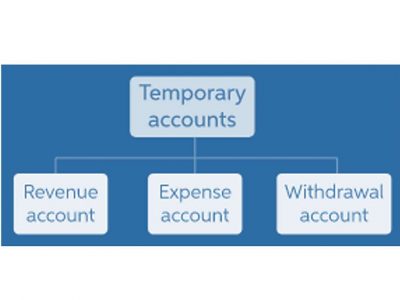
This can lower their credit score and make it more difficult to obtain credit in the future. Lenders and financial institutions consider a person’s credit score when evaluating their creditworthiness, and a lower score can result in higher interest rates or even denial of credit. It is crucial to promptly address and resolve outstanding checks to prevent damage to one’s credit history. Timing plays a crucial role in the occurrence of outstanding checks. Sometimes, it is simply a matter of bad timing that leads to a check being labeled as outstanding. For example, if a check is deposited shortly before the account holder’s funds are scheduled to be transferred or deposited, it may result in a delay in processing.

Effect of Unpresented Check on Balance Sheet
- If the check cleared for $751, what happened to your utilities expense?
- If the payee finally deposits the check after months of delay, you risk overdrawing your account and bouncing the check.
- Reducing outstanding checks improves financial efficiency and accuracy.
- Appropriately identifying outstanding lodgements and unpresented cheques is imperative for accurate bank reconciliations.
- However, until the payee presents the check to the bank and the bank debits the company’s account for the corresponding payment, the check is considered outstanding.
This includes tracking each transaction that has been made, ensuring that all checks have been deposited or cashed, and balancing your account on a regular basis. Setting up alerts for large or unusual transactions can also help prevent outstanding checks. By regularly reconciling your accounts, you will be able to see deferred payments and overlooked deposits. Besides avoiding potential bounced or overdraft fees, reconciling monthly will ensure proper cash flow management. An outstanding check is a check that has been issued by the payer but has yet to be cashed or deposited by the payee. These checks help to reflect financial transactions in accounting records accurately.
- Outstanding checks can create discrepancies, complicating reconciliation.
- Whether you’re a small business owner, a staff accountant, or a bookkeeper, one issue you’re likely to run into is handling outstanding checks.
- An outstanding check is a check that has been issued by the payer but has yet to be cashed or deposited by the payee.
- This could involve sending reminders or confirmations upon check issuance, which not only prompts timely cashing but also verifies that the check has reached the intended recipient.
- Banks may inadvertently honor stale-dated or voided checks, violating policies or exposing themselves to disputes.
- This is because the bank still needs to clear it on the payer’s end, as it is yet to be presented, and the status of its clearance remains uncertain.
- If you’re still relying on spreadsheets or paper-based processes it may be time to explore how bank reconciliation software can transform your workflow.
What is an unpresented cheque or check and does it require an adjustment to the balance sheet?
Additionally, banks must comply with anti-money laundering (AML) regulations, which may require additional scrutiny of long-outstanding checks. Strong internal controls and clear communication among all parties are essential to mitigate these risks. For payees, Certified Public Accountant uncashed checks can cause financial difficulties, especially if the check represents wages or reimbursements.

Can you cash a stale-dated check?

Businesses must maintain an updated compliance calendar to avoid fines or penalties. What are the legal implications and regulatory requirements regarding outstanding checks? When it Catch Up Bookkeeping comes to handling outstanding checks, there are various laws and regulations that impact both payors and payees.
AccountingTools
By tracking outstanding checks, businesses can ensure the integrity of their financial reporting, manage cash flow effectively, and prevent discrepancies that can impact their financial stability. It is essential to understand the causes of outstanding checks, the consequences of not managing them, and the methods to identify and reconcile them. Reconciling outstanding lodgements and unpresented cheques requires timely and reliable financial management tools.
- This includes noting down the date, time, and content of each interaction with the bank.
- However, it may incur banking charges or take time to cash, establishing it as a monetary instrument that ensures payment after proper due diligence by the bank.
- Once you have worked through all the remaining items on the book side, compute the reconciled balance for the books.
- In conclusion, resolving outstanding checks requires effective communication with the bank, diligent tracking and follow-up, and a thorough reconciliation process.
- Mary plays the float when she mails her rent check on Thursday even though she does not have a sufficient balance in her personal checking account.
- Adopting proactive habits can make a big difference when managing outstanding checks effectively.
By doing so, you ensure that your organization continues its mission while minimizing exposure to legal liabilities arising from non-compliance with relevant rules and regulations. You’re not alone understanding outstanding checks and how to stay clear of their risks is essential for anyone managing their finances. Gain comprehensive visibility into all your accounts with Eisen’s intuitive dashboard.
- Learn about outstanding checks in accounting and how they impact your finances.
- An outstanding check can be defined as a check that has been issued but has not yet been cleared by the bank.
- Violations of legal regulations may arise from the existence of outstanding checks.
- You may think you have a certain amount of money available, but if there are outstanding checks that haven’t been accounted for, you could end up overspending.
- Instead, they consider it during the bank reconciliation process to ensure that the cash balance reported on the balance sheet is accurate.
- In conclusion, reconciling outstanding checks is a necessary part of effective financial management.
Is an outstanding check a debit or credit?

This eliminates the need for paper checks and reduces the likelihood of having to deal with issues related to outstanding checks. Additionally, maintaining open communication channels with payees and setting up reminders for upcoming payments can help ensure timely deposits or cash transactions. This situation, often resulting from unpresented cheques and outstanding lodgements, can cause a discrepancy in the bank balance until the transaction is processed and properly accounted for.
What is an outstanding lodgement in accounting?
The reconciliation process aligns a company’s internal financial records with external bank statements to ensure accuracy. It begins with gathering financial data, including transaction records and bank statements, to identify discrepancies caused by timing differences, errors, or unprocessed transactions. Appropriately identifying outstanding lodgements and unpresented cheques is imperative for accurate bank reconciliations. Modifying for these timing discrepancies ensures alignment of the cash records to the statement, satisfying reporting standards while also reducing potential errors or fraud. Careful bank reconciliation of outstanding check meaning outstanding items is fundamental to robust cash management and financial control. In the context of bank reconciliation, understanding the implications of unpresented cheques and outstanding lodgements is important for achieving an accurate cash book balance.

